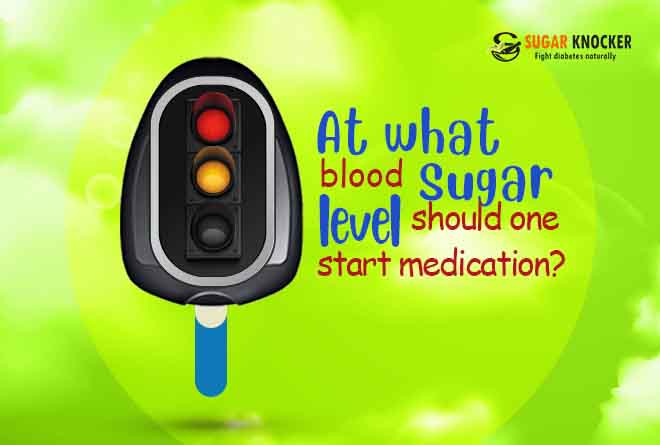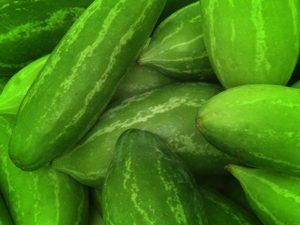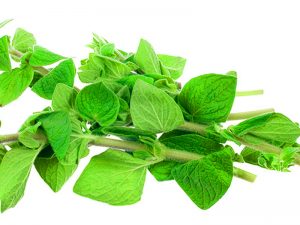
Introduction
Maintaining normal blood sugar level is crucial for overall health and well-being. Blood sugar, or glucose, is the primary energy source for the body’s cells, and its levels must be regulated to prevent health issues such as diabetes. Understanding what constitutes normal blood sugar levels can help you manage your health more effectively. In this guide, we will explore the normal blood sugar levels for various groups, how to maintain these levels, and common misconceptions.

What Are Normal Blood Sugar Level?
Definition of Normal Blood Sugar Level
Normal blood sugar levels refer to the range of glucose concentration in the blood that is considered healthy. For most adults, a normal fasting blood sugar level is between 70 and 100 mg/dL. Levels below or above this range may indicate health issues that need attention.
Why Monitoring Blood Sugar Level Is Important
Monitoring blood sugar levels helps detect imbalances early, allowing for timely intervention. This is particularly important for individuals with diabetes, as maintaining normal blood sugar levels can prevent complications such as heart disease, nerve damage, and vision problems.
Factors Affecting Blood Sugar Levels
Several factors can influence blood sugar levels, including diet, physical activity, medication, stress, and illness. Understanding these factors helps in managing blood sugar levels more effectively.
Normal Blood Sugar Level for Different Groups
Normal Blood Sugar Levels for Adults
- Normal Blood Sugar Levels for Men: Generally, men should aim for fasting blood sugar levels between 70 and 100 mg/dL. Post-meal levels should be less than 140 mg/dL.
- Normal Blood Sugar Levels for Women: Similar to men, normal fasting blood sugar levels for women range from 70 to 100 mg/dL. It’s crucial to monitor these levels, especially during hormonal changes such as menopause.
Normal Blood Sugar Levels for Pregnant Ladies
Pregnancy can affect blood sugar levels due to hormonal changes. Pregnant women should maintain fasting blood sugar levels below 95 mg/dL and one-hour post-meal levels below 140 mg/dL to prevent gestational diabetes.
Normal Blood Sugar Levels for Diabetic Patients
- Type 1 Diabetes: Individuals with Type 1 diabetes should aim to keep their fasting blood sugar levels between 80 and 130 mg/dL and post-meal levels below 180 mg/dL.
- Type 2 Diabetes: For those with Type 2 diabetes, the targets are similar, with fasting levels between 80 and 130 mg/dL and post-meal levels under 180 mg/dL.
Normal Blood Sugar Levels for a Healthy Body : A blood sugar level less than 140 mg/dL (7.8 mmol/L) is normal. A reading of more than 200 mg/dL (11.1 mmol/L) after two hours indicates diabetes. A reading between 140 and 199 mg/dL (7.8 mmol/L and 11.0 mmol/L) indicates prediabetes.
They say, what you eat is what you are! Your health is mostly dependent upon how you manage your diet along with the lifestyle you lead. However, given the busy lifestyle led by today’s generation, it could actually be hard to keep up with a good lifestyle. This is why diseases such as High Blood Pressure, Diabetes, Heart Attack, etc have been taking a toll over the youth with numbers rising every passing day. People develop diabetes when the Normal Blood Sugar Levels or the Blood Glucose Levels or the Blood Sugar Concentration increases more than normal.
Blood Sugar Levels at Different Times
Normal Blood Sugar Level Before Breakfast
The fasting blood sugar level, usually measured after waking up and before eating, should be between 70 and 100 mg/dL for a healthy individual.
Normal Blood Sugar Level Two Hours After Eating
Two hours after eating, normal blood sugar levels should be less than 140 mg/dL. This measurement helps assess how well the body processes glucose post-meal.
Normal Value of Fasting Blood Sugar Level
A normal fasting blood sugar level is vital for diagnosing diabetes and monitoring overall health. Values between 70 and 100 mg/dL are considered normal, while levels above 126 mg/dL on two separate tests indicate diabetes.
How to Maintain Normal Blood Sugar Levels
Diet and Nutrition Tips
Eating a balanced diet rich in whole grains, lean proteins, and healthy fats can help maintain normal blood sugar levels. Avoiding excessive sugar and refined carbs is also crucial.
Importance of Regular Exercise
Physical activity helps the body use insulin more efficiently, lowering blood sugar levels. Aim for at least 150 minutes of moderate exercise per week, such as walking or cycling.
Medication and Insulin Management
For those with diabetes, following prescribed medication regimens and managing insulin intake are essential to keeping blood sugar levels within the target range.
Common Misconceptions About Blood Sugar Levels
Myths vs. Facts
There are many misconceptions about blood sugar levels, such as the belief that only overweight individuals can develop diabetes. Understanding the facts can help in better managing health.
The Role of Stress in Blood Sugar Levels
Stress can cause blood sugar levels to spike due to the release of stress hormones like cortisol. Learning stress management techniques is essential for maintaining normal levels.
Impact of Sleep on Blood Sugar Levels
Poor sleep can negatively affect blood sugar control. Aim for 7-9 hours of quality sleep each night to support overall health and stable blood sugar levels.
Monitoring and Testing Blood Sugar Levels
How to Use a Glucose Meter
Using a glucose meter involves pricking a finger to get a drop of blood, placing it on a test strip, and inserting the strip into the meter to read the blood sugar level. Regular testing helps track fluctuations.
Importance of Regular Checkups
Regular medical checkups are crucial for monitoring blood sugar levels and adjusting treatment plans as needed. These checkups can help detect and prevent complications early.
Interpreting Your Blood Sugar Test Results
Understanding what your blood sugar test results mean is key to managing your health. Consult with a healthcare provider to interpret results and make necessary lifestyle changes.
What is Glucose?
Glucose is actually a simple form of sugar. Approximately, humans have around 4 grams of the glucose present in the blood for an average weight of 70 kilogram. With the help of metabolic homeostasis, our body regulates the blood sugar levels at regular intervals. Glucose is actually stored in the liver cells and skeletal muscles as glycogen. The fasting blood sugar level, i.e. blood sugar levels without eating for hours is actually maintained constantly at a certain number by the body by use of the glycogen stores present in the skeletal muscles or liver.
[Also Read What is Diabetes and Its Uncommon Symptoms?]
How Important Is Glucose for Humans?
Among humans, the amount of glucose present in the blood plays a major role. It is a primary energy source which is critical to normal functioning of the body and brain. Blood sugar levels or glucose levels generally show up lowest as you wake up early in the morning. It rises up slowly as you take your meal for the day by few millimoles. Now, any of the diabetes educators will tell you that blood sugar levels that go way beyond the normal usually point towards conditions such as diabetes. While some opt for allopathic medications for controlling these heightened blood sugar levels, some opt for Ayurvedic medicine for sugar level fluctuations.
Blood Sugar Chart
Types of Diabetes
1-Diabetes Mellitus (Hyperglycemia):
Blood sugar levels with diabetes mellitus remain on the higher side which is way above the normal level stated above. In this condition, when unchecked, people with diabetes might experience the blood sugar levels rising above 300 mg/dl. This leads to fatal reactions and medical complications.
[Also Read How to overcome Diabetic Hyperglycemia???]
2-Diabetes Insipidus (Hypoglycemia):
Diabetes Insipidus also affects your blood sugar levels but, in a manner that is opposite to Diabetes Mellitus. Here, the blood glucose levels go way below the normal leading to seizures, dizziness, unsteadiness, etc.
[Also Read How To overcome Diabetic Hypoglycemia?]
When should you start taking medications?
Any level of glucose that is way above or below normal can affect the way your body operates leading to major deterioration. Make sure you get a blood test to ensure that you aren’t diabetic. Even if you are pre-diabetic, it is suggested that you should opt for medical advice and start taking medications to ensure that your blood sugar levels are under control.
Try to monitor information such as:
- Medication can affect your blood glucose level, so make sure you monitor the dosage and type of medication you take.
- What you eat, when you eat, or if you had been fasting.
- The amount of physical exercise you opt in to ensure that your high blood sugar remains normal
Now, there are many holistic ways to control your blood sugar levels. Ayurvedic medicine for sugar can help you aid with blood sugar control. Let’s take a look at some of the best Ayurvedic medicine for sugar that can help anyone suffering from diabetes mellitus, diabetes insipidus, or even pre diabetes.
[Also Read How to Control Diabetes with Ayurvedic treatment?]
Gymnema Sylvestre (Gurmar):

Known by the common title Gurmar, Gymnena Sylvestre, this herb is aptly described as “Sugar Crusher”. The efficiency of this Ayurvedic treatment for diabetes is best when it comes to reduction of blood sugar levels. This herb can affect your blood sugar level by assisting in the regeneration of residual beta cells in the pancreas. It also reduces one’s dependence on the insulin medications.
Coccinia Indica:

Coccinia Indica is a powerful ayurvedic medicine for sugar that serves as an anti-diabetic agent. This herb for regulation of plasma blood glucose helps in the breakdown of the starch content in the food and thereby prevents any sudden surge in the blood sugar levels. Additionally, in the long term, this Ayurvedic medicine for sugar helps protect vital organs in your body that might be affected due to an increase in the blood sugar levels. Coccinia Indica also protects the diabetic patients from oxidative stress.
Azadirachta Indica (Neem):

The bitter taste of this herb might leave you feeling disgusted but trust us; it is a boon for patients suffering from diabetes and high blood sugar levels. This Ayurvedic medicine for sugar control can either be used in empty stomach or along with food. The flowers, leaves, and soft barks of this plant is beneficial for people suffering from diabetes insipidus and diabetes mellitus.
Morus Indica (Mulberry):

The leaves of Morus Indica are among the most recommended herbs for Ayurvedic medicine for sugar control. Experimental studies on this popular choice among Ayurvedic medicines suggest that the daily intake of this herb especially when soaked in water overnight can aid with a 38 percent reduction of blood sugar levels. The leaves are known to correct the lipid abnormalities among the Type 2 Diabetics. Chewing mulberry leaves with a glass of water daily in the morning can also delay any onset of diabetic cataract.
Momordica Charantia (Bitter Gourd):

Also known as Bitter Gourd, this anti-diabetic food item is a major addition to your diet when it comes to treating diabetes. It is extensively used as an important Ayurvedic medicine for sugar control. Bitter Gourd helps with increasing the secretion of insulin in the blood and improves the functionality of beta cells in the pancreas. It also helps correct any pitta dosha or kapha dosha which in turn helps in controlling blood sugar. It also helps in reversing the pancreatic damage with proper insulin secretion while aiding a better management of blood sugar levels.
[Also Read Benefits of Bitter Gourd or Karela Juice Benefits]
Eugenia Jambolana:

The seeds and fruit of Eugenia Jambolana can significantly bring down the blood sugar levels with regulation of plasma blood glucose. Further, it could also bring down any potential risk from kidney dysfunction that occurs due to high blood sugar levels. With Eugenia Jambolana, the level of glucose tolerance increases and it also aids in the healing process of wounds among diabetic patients.
[Also Read How turmeric and Black Jamun can help diabetes]
Aloe Vera:

Aloe Vera juice or Aloe Vera gel serves a greater good when it comes to management of blood sugar levels with this Ayurvedic medicine for sugar control. This particular Ayurvedic treatment for diabetes helps maintain the blood sugar levels with the help of a chemical present in the same called phytosterols that has been known for its antihyperglycemic properties.
[Also Read Aloe Vera for Diabetes and Aloe Vera Uses, Side Effects and Dosage]
Oregano:

This particular exotic herb is an Ayurvedic medicine for sugar that comes from Mediterranean and Spanish origin. Oregano houses chemicals called the glycosides that help lower excessive blood sugar levels. Additionally, it increases insulin level in the blood in a holistic way. Oregano can easily be consumed from day-to-day basis in dried form with soups, salads, or in the form of tea. Not just that, one can get oregano oil from your local seller and add few drops to a glass of luke warm water and consume every day after waking up in the morning before having your breakfast.
Fenugreek:

Fenugreek is another important mention when it comes to Ayurvedic medicine for sugar. It is known for its hypoglycaemic activities that increase one’s tolerance level to high blood sugar and thus bringing it down to normal. Also, it is high in fibre level and thereby aids in slowing down any absorption of sugar or carbohydrate.
[Also Read Fenugreek For Diabetes, Benefits of Fenugreek, Side Effects and Dosage]
Conclusion
Maintaining normal blood sugar levels is essential for overall health and preventing complications such as diabetes. By understanding the factors that affect blood sugar, monitoring levels regularly, and adopting a healthy lifestyle, you can manage your blood sugar levels effectively. Stay informed, stay healthy, and consult healthcare professionals for personalized advice.
Why Sugar Knocker?
As of now, Sugar Knocker flaunts 87.68 percent satisfaction rate with 14687+ customers satisfied till date. Sugar Knocker has some of the best herbal ingredients that aid your body in restoration of normal blood sugar levels. Sugar Knocker ensures safety and better health in terms of human consumption with no possible ill effects. It houses age-old herbs such as Momordica Charantia, Gymnema Sylvestre, Petrocarpus Marsupium, Salacia Retriculata, Curcuma Longa, Eugenia Jambolana, Emblica Officinalis, Tinospora Cordifolia, Ocimum Sanctum, Cinnamon, Banaba, Chromium, and Zinc Gluconate that are beneficial for bringing down the blood sugar levels.


You are so interesting! I do not believe I have read something like this before. So nice to find someone with some unique thoughts on this topic. Really.. many thanks for starting this up. This website is one thing that is required on the web, someone with a little originality!To find perfect diet just answer some questions: http://customketodiet.readreviews.ga Get personalized diet program
I really appreciate your compliments. Please keep supporting us by sharing this information with the needy ones. Thank you.
Thanks for the kind words.